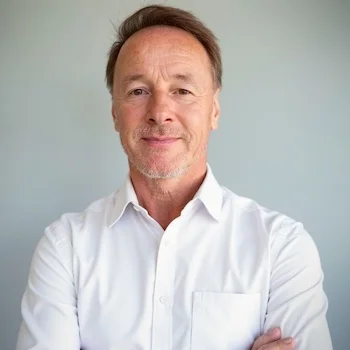
Business
Your Next C-Suite Hire: A Hypocrisy Hawk
In a world of high-stakes risks and rolling crises, organisations pour millions into cybersecurity, ESG, DEI, carbon credits, and AI-driven reputation tracking. Yet amid this heavily oiled machinery of “prevention,” a familiar threat is allowed to metastasise in boardrooms and politburos alike: double standards.
Double standards bewilder audiences. Bewildered audiences demand clarity. And that clamour invites scrutiny, reputational drag, and long, punishing news cycles. Hence, the case for a Chief Hypocrisy Officer (CHO): a senior counsellor charged with spotting and stopping the patterns of duplicity that corrode credibility. If any of the behaviours below feel uncomfortably familiar, you already have the problem a CHO is meant to solve.
Saying one thing and doing another; praising democracy while quashing dissent; expressing empathy while practicing pathology; denouncing one offender while excusing another for the same transgression; preaching neutrality while prosecuting partisanship.
At root, these lapses seed crises born of unethical decision-making by leaders and power elites. Consider the retailer that professes solidarity with customers during a cost-of-living crunch, yet plays “switcheroo” with prices, packaging, and weights to hit ever-hungrier profit targets. Or the pious moralist—holy types often do double standards brilliantly—who preaches propriety, then lives lavishly and without restraint.
Organisational hypocrisy typically feeds on equal parts arrogance and disrespect. If you believe audiences won’t recoil from ethical duplicity, that’s arrogance—or ignorance—at work. And if your polling suggests your brand of falsity will carry no real consequence, you don’t need a spin doctor; you need a better pollster.
Sanctimonious prevarication is wrecking brands, political parties, shareholder trust, and the ever-coveted “media optics.” Yet it remains curiously under-examined in corridors of power. So imagine a few notional case studies your Chief Hypocrisy Officer would be tasked to intercept—or at least mitigate—before they blow up.
The Canoodle-Cam Conundrum
You’re the leader of a fast-scaling firm whose CV touts accountability, ethics, professionalism, and high standards. You also care about work-life balance, so you attend a rock concert. Feeling “at one” with a co-executive (who happens to be married—to someone else), you canoodle and sway to the muzak until a spotlight lands on you and the stadium’s big screen fills with your faces. The contradiction is immediate: your company postures on culture, integrity, and values; your behaviour reads as the opposite. A CHO’s job is not to adjudicate private life, but to force the question leaders rarely ask themselves in the moment: what will this look like when the camera pans to me?
Political Football
Now consider an international sports body—call it the Unequivocal Authority For Football (UAFF). It once took a bold, lauded moral stand by banning teams from a large, cold-climate nation after egregious acts of aggression. But when similar complaints arise about another warring state from sunnier latitudes, UAFF musters only platitudes about how sport and politics shouldn’t mix. What, then, was the earlier cold-shoulder vote if not politics? This selective enforcement is not merely hypocrisy; it invites charges of bias, even racism. Your CHO cannot refight geopolitics, but can insist that publicly stated principles travel evenly across cases—or warn that they will be weaponised against you.
Whether in corporations or politics, selective application of standards is predictably ruinous. If you insist on taking a stand, apply it consistently—or brace for the consequences. Brickbats and backlashes will follow, and your brand will be read like an unpredictable banana republic: malleable, supine, untrustworthy—a state with neither backbone nor principles.
That is why the CHO’s remit is vigilance: to flag when your entity is drifting toward humbuggery and to advise against it. The role is procedural as much as moral. A CHO designs decision frameworks that keep operations and reputation aligned with stated values—especially when the heat is on. They coach divisional shot-callers in principled issues-management, so that choices under pressure match the ethics printed on your annual report.
Trading Standards
Without such stewardship, organisations tend to raid the “double standards” playbook—ripping out old pages and inserting new ones to suit the moment. That signals a willingness to trade ethical and moral standards for self-serving goals, a move that rarely wins friends or influences people. Today’s audiences can sniff out what’s true and what smells like BS. That’s when moral fissures widen into reputational sinkholes.
A CHO should hammer home a simple reality: public perception hinges not only on what you do, but on how reliably you do it. That is why you hire a conscience, not a spin doctor on speed-dial for the day you wriggle out of your ethical undertakings. Consumers are cynical and savvy; they keep receipts. Screenshots outlast press releases. And a week of soundbites will be measured against a year of profits—and an era of ambition.
How to Mitigate Double Standards
Appoint a notional CHO by retaining an external ethics adviser who is insulated from internal politics, included in leadership reviews, and empowered to give explicit guidance on moral trade-offs—including authority to pause or escalate choices that contradict your stated principles.
Audit your values by testing the operational ones, not the slogans. Map each value to routine decisions in procurement, pricing, marketing, labor policy, and partnerships; pressure-test how they hold up in hard quarters; and identify where the organization falls short and what must change.
Embrace transparency when trade-offs are unavoidable. State which standard you are departing from, why the departure is necessary, what safeguards will mitigate harm, and when you will return to the higher bar. Publics tend to reward flawed candor over a polished untruth, so document the rationale and publish the accountability steps.
Run ethics scenarios instead of hiring spin doctors to “lie better.” Stage regular crisis simulations that stress-test decision quality and consistency across functions, set clear go/no-go thresholds, and measure performance against ethics KPIs so practice—not improvisation—governs your toughest moments
An Uninsurable Crisis
“Chief Hypocrisy Officer” is tongue-in-cheek—few would want that on an e-card—but the function is deadly serious. Someone must act as institutional conscience and as early-warning radar for issues that look like double standards. Hypocrisy is not just embarrassing; it’s insurmountable. No underwriter will refund the costs when your inconsistency goes viral. There will be no compensation cheques when journalists—and, yes, social media—take a crowbar to your stated values. If your probity applies only to some people, in some places, under some circumstances, you do not have brand integrity. You have a liability.
Sooner or later, someone will put you on the kiss-cam, under the microscope, or—worse—on the chopping block. By then, even the sharpest Chief Hypocrisy Officer will struggle to redeem your reputation. The point is to prevent the double standard before it becomes the headline.
